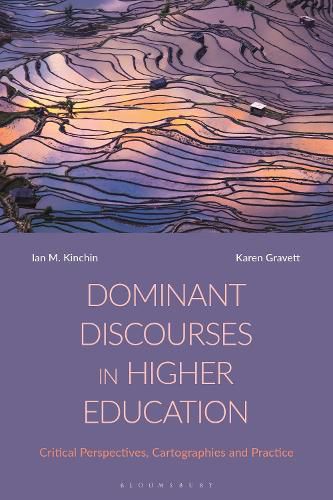Readings Newsletter
Become a Readings Member to make your shopping experience even easier.
Sign in or sign up for free!
You’re not far away from qualifying for FREE standard shipping within Australia
You’ve qualified for FREE standard shipping within Australia
The cart is loading…






This book examines the dominant discourses in higher education. From the moment teachers enter higher education, they are met with dominant discourses that are often adopted uncritically, including concepts such as teaching excellence, student voice, and student engagement. Teachers are also met with simplistic binaries such as teaching vs. research, quantitative vs. qualitative research, and constructivists vs. positivists. Kinchin and Gravett suggest that this may present a distorted view, contributing to the disconnect between the aims and observable practice of higher education. Rather than celebrating difference, dominant discourses tend to seek similarities in an attempt to simplify and manage the environment.
In this book, the authors share their belief that teaching and learning should be a thoughtful endeavour. Thinking with a breadth of theories, the authors explore the overlaps between different perspectives in order to offer a richer and more inclusive interrogation of the dominant discourses that pervade higher education. Offering methodological approaches to explore these perspectives, the authors bring together academics working in different parts of the university and examine the concept of a ‘rich cartography’, considering how this can offer meaning within higher education research and practice.
$9.00 standard shipping within Australia
FREE standard shipping within Australia for orders over $100.00
Express & International shipping calculated at checkout
This book examines the dominant discourses in higher education. From the moment teachers enter higher education, they are met with dominant discourses that are often adopted uncritically, including concepts such as teaching excellence, student voice, and student engagement. Teachers are also met with simplistic binaries such as teaching vs. research, quantitative vs. qualitative research, and constructivists vs. positivists. Kinchin and Gravett suggest that this may present a distorted view, contributing to the disconnect between the aims and observable practice of higher education. Rather than celebrating difference, dominant discourses tend to seek similarities in an attempt to simplify and manage the environment.
In this book, the authors share their belief that teaching and learning should be a thoughtful endeavour. Thinking with a breadth of theories, the authors explore the overlaps between different perspectives in order to offer a richer and more inclusive interrogation of the dominant discourses that pervade higher education. Offering methodological approaches to explore these perspectives, the authors bring together academics working in different parts of the university and examine the concept of a ‘rich cartography’, considering how this can offer meaning within higher education research and practice.